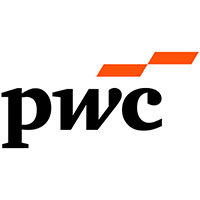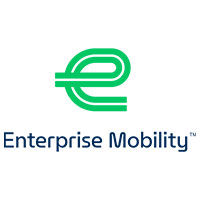
Finance Placements
Finance placements are your chance to take what you’ve learned in your lectures and see how it actually works in the professional world. Getting your foot in the door with a placement will give you the chance to impress employers and build connections that will open doors throughout your career.
Read on to find out all about finance placements and how you can begin your career with one.

What are finance placements?
Finance placements give you a full year of valuable work experience while you’re at university. Think of placements as your chance to test-drive your career before you graduate.
There are so many avenues in finance that you’ll be spoilt for choice. Whether you want to get into the nitty-gritty of banking, flex your customer service skills or even work behind the scenes in HR, there’s a space for you. Here are some typical roles that finance employers offer to placement students:
Actuarial analyst
Junior accountant
Audit assistant
Tax analyst
Financial services
Global capital markets.
The greatest part of a placement year is that you'll gain confidence, practical skills, and a clearer picture of what you want from your future career – all while earning money and potentially securing a graduate job offer.
Don’t believe us? Hear from these HSBC placement students who came back after graduating:
Now that you know what a finance placement is, what do you do? Read on to find out.
What happens during a finance placement?
During your placement, you’ll get on with real tasks and work on real projects from day one. The tasks you get on with will depend on the finance path you’ve chosen.
It’s always a good idea to check through the job description and read our super handy student-written reviews, but some tasks you could get involved in can include:
Analyse data to create financial forecasts for companies
Prepare monthly financial reports
Assist with internal and external audits
Create and look after reporting templates
Create budgets for projects.

“My role focused mostly on headcount as my team was moving from a manual Excel process to a faster Power BI process. I also helped with month-end and quarterly financial tasks such as Journals and Balance Sheet Reconciliations. Later in my placement, I became a Subject Matter Expert in the Inventory Cycle, which resulted in preparing SLOB and Inventory Reporting as well as doing some Sales and COGS calculations. Having all of these responsibilities meant that each day was different. Finance Placement Student, Johnsons & Johnsons
What skills do you need for a finance placement?
First things first, a placement is all about learning and picking up skills and experience you might not yet have. So don’t be too worried if you don’t have all the skills yet. The trick is to take what you already have and show it the hell off.
Soft skills are the lifeforce of the workplace, and the best part is that you already have a truckload of these. Some of the soft skills employers look for include:
Communication
Problem-solving
Critical thinking
Flexibility
Collaboration and teamwork.
If you study finance and go for a placement, there’s a high chance you’ve used some hard skills in your studies. If you haven’t, that’s okay - you’ll be taught how to use these. Some hard skills you’ll learn during your placement include:
Data analysis
Budgeting
Reporting
Accounting software (Oracle, SAP, Microsoft Dynamics and so on)
Microsoft Excel
The real value of skills is showing employers HOW you work. Instead of worrying about having every technical ability, showcase the strengths you already have in your applications.
Which companies offer finance placements?
SO MANY. Whether you’re drawn to global powerhouses like Wells Fargo and PwC, high street faves like NatWest Group or Lloyds or even want to work in the finance department of the brands you love, there are so many opportunities out there. Here are some of the top employers looking for the future of finance:

“I really enjoyed the placement; I was challenged throughout so I could develop my skills. Interacted with great individuals who made the experience enjoyable.” Finance Placement Student, L’Oréal
Want to know more about what it’s like to be a placement student? Read our student-written reviews.
READ FINANCE PLACEMENT REVIEWSHow much do finance placements pay?
The average placement salary is £22,000 per year. This varies by employer - for example, a placement with BDO pays around £25,000, while a finance placement with the NHS typically offers between £18,000 and £19,000 per year.
As a placement student, you'll enjoy many of the same benefits as your full-time colleagues. Beyond your holiday allowance (usually 24-30 days annually), you might also receive:
Gym membership discounts
Mental health support
Volunteer days
Dental insurance
Pension contributions.
Each experience you gain helps you progress in your career and unlock higher earning potential. Once you hit graduate level, you could stand to earn between £30,000 to £45,000 per year.
How to apply for a finance placement
Applications for placements typically open as soon as you start your second year (from September) with interviews beginning as early as February. The bigger companies attract loads of applicants, so getting your application in early gives you a much better chance.
You'll need to start by creating a strong CV and cover letter. If these impress employers, you'll be invited to an assessment centre where you'll tackle various activities and attend an interview.
Ready to apply? We love that for you! Check out all our top-tier application advice, where you’ll find everything from crafting a showstopping CV to acing your assessment centre and interviews. Click below to get started.
READ APPLICATION TIPSReady to get your career in finance started? We have LOADS of finance internships available right now.























